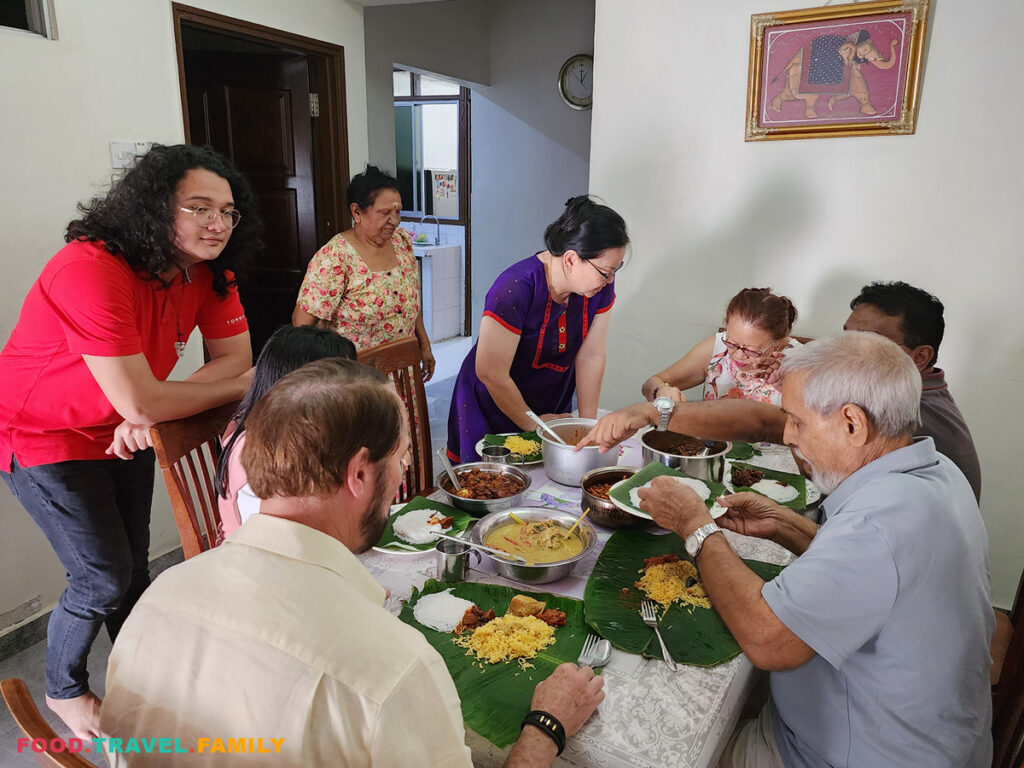Celebrate Every Festival in Malaysia Together
Being in a multicultural families give us the chance to celebrate every festival in Malaysia together. We have been told our families are like “rojak” because “rojak” is a salad mixture of veggies and fruits. Our immediate families are liken to “rojak” because we have Chinese, Malays, and Indians; the three main races in Malaysia. We are also Straits Born Chinese most commonly known as The Peranakans with our very own distinctive lingo and food. My generation married Caucasians and Thai which expended our multicultural families even more. We love it! Coming together to celebrate a festival regardless of race and religion is what we look forward to and enjoy.
Family’s Diwali
Shane and I are so lucky we arrived in Malaysia just in time to celebrate Diwali. It has been a yearly ritual for me to be with Helen’s family’s Diwali at her mother-in-law’s house. Pati (meaning grandmother in Tamil language) is a great cook and all of us look forward to having an Indian food fest at her house. Pati’s cooking is much sort after and she is very meticulous with the amount of spices used and how each dish should be cooked. She has invited us, aunt Susie and her husband Dev to join the family’s Diwali lunch at her house.
What is Diwali?
What is Diwali? Diwali or Deepavali as we would say it in Malaysia is the biggest and most important Indian holiday for the Hindus. The festival gets its name from the clay lamps (deepa) arranged is a row (avali) and lighted outside of their homes. This symbolizes the spiritual victory of light over darkness, good against evil and knowledge over ignorance. The custom of lighting the clay lamps on the night of the new moon is to invite the presence of Lakshmi, the Goddess of Wealth. Diwali is a public holiday in Malaysia. Helen’s family celebrates by lighting fireworks at night to usher in the holiday and to the temple in the morning. Then all of us dressed up for the family’s Diwali lunch at Pati’s house.
Pati’s Indian Dishes
Helen’s children and husband were already at their grandmother’s house when Helen brought us, mom, uncle Dev and aunt Susie there. It has been a couple of years since we last see Pati pre Covid-19 time. Diwali in Malaysia is special and festive because of Helen’s family. Pati’s Indian dishes are spicy and scrumptious and made authentic with layers of banana leaves used instead of plates. Hot biryani rice infused with mixed spices and herbs brings out the fragrant of the banana leaves. This is topped with creamy chicken korma and vegetarian mutton varuval. They are my favorite. She also cooked her grandchildren’s favorite Indian dishes; sotong pretel and mutton varuval accompanied with acar. The family’s Diwali lunch is not complete unless putu mayam (Idiyappam or also known as string hopper) is served to soak up all the gravies.
Watch our Diwali lunch at Helen’s mother-in-law’s house.
Social Gathering
Social gathering is so much a part of our Malaysian lifestyle. The family’s Diwali lunch brought three families together. A relative has sent over her delicious jelly cake. We finished it in minutes and continue to enjoy durians brought over by aunt Susie. Siva, Helen’s husband taught Shane how to peel off the durians. Happiest people are aunt Susie and Pati; both of them love durians and ate to their hearts content. I love this part of our lives with our multicultural families. English is our common language but mixed with Malay, Mandarin and Tamil with mom and Pati. Our social gathering is often loud, festive and everyone talking with and over each other. It’s controlled chaotic gathering and always so fun and memorable.

